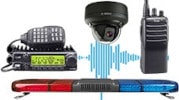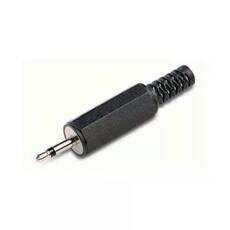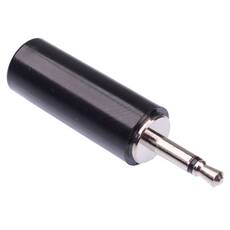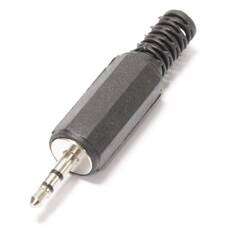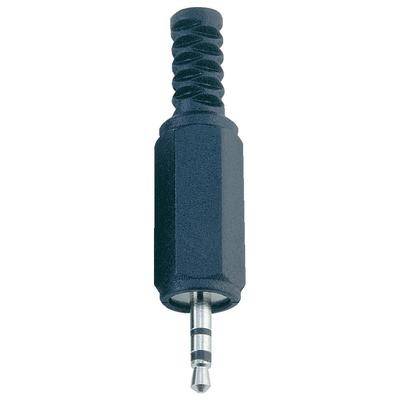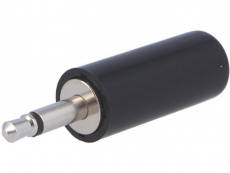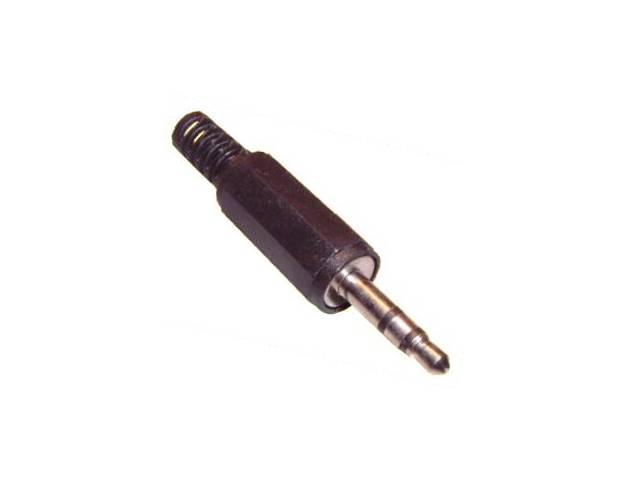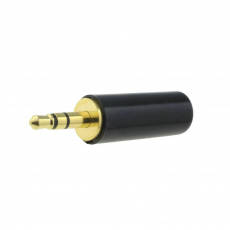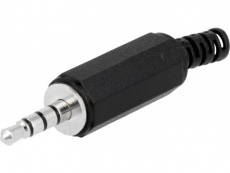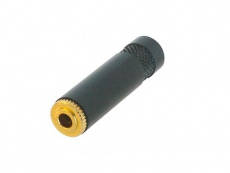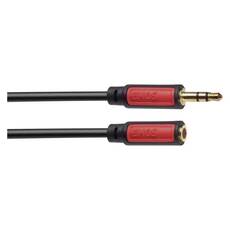Jack Connector
The jack plug was patented as early as 1879 and began to be used to improve telephone exchanges. This makes it the oldest electronic connector. It came back into the spotlight in the 1950s with the portable transistor radio. It was the 3.5 mm version. But it was the spread of walkmans that made jack plugs a world success, as you could connect tiny headphones to this type of player via a jack. Read more...
• 2.5 Mono Jack Plug Connector, Plastic Housing
• 2.5 Mono Jack Plug Connector, Plastic Housing
• High-quality branded connector
• 2.5 Stereo Jack Plug Connector, Plastic Housing
• 2.5 stereo jack plug
• High-quality branded connector
• 3.5 Mono Jack Plug
• 3.5 stereo jack plug connector
• Professional quality
• Gold-plated version
Special gross price: 3.15€ (Net price: 2.48€)
• 3.5 Stereo Jack Plug (4 Pol)
Special gross price: 3.24€ (Net price: 2.55€)
• Professional quality
• Gold-plated version
• Connectors: 3.5 stereo Jack plug - 3.5 stereo Jack socket
• Length: 2.5m
• Outer cover: black PVC
• Connectors: 3.5 stereo Jack plug - 3.5 stereo Jack socket
• Length: 5m
• Outer cover: black PVC
They were mostly 2.5mm mini plugs. If you want to get professional sound, however, only the 6.35 mm large jack plug is a good choice. These plugs are also known as TRS plugs. This abbreviation is the equivalent of the English word Tip/Ring/Sleeve, which in English means spike/ring/sleeve.
But what exactly do they mean? A spike is the end of the jack plug, a ring is the middle part between the two plastic separators, and a sleeve is the rest of the metal part of the plug. Each part of the jack plug is electrically isolated from the others, allowing the plug to carry more than one signal.
This electronic device is available in mono, which is single-channel and has the international designation TR, or stereo, which is dual-channel and has the international abbreviation TRS, and also in three-channel, which has the international designation TRRS.
What devices can the different jack connectors be used for?
There are several types of jack plugs, grouped by size and design. The larger 6.35 mm jack plugs are used for headphones, microphones, electric guitars and mixing desks. The 3.5 mm version is used for smartphones, tablets, headphones and radios.
Often referred to as a sub-mini jack, 2.5 mm jack plugs are the 3/32-inch version that work just like a mini jack, but are designed for smaller electronic devices.
What is the difference between 3.5 mm and 6.35 mm jack plugs?
The two jacks differ primarily in size, but there is also a difference in where we can use them. Compared to the larger versions, the 3.5 mm jack plug is more suited to less demanding applications, such as portable devices, iPods or tablets that we use as headphone jacks every day.
Are there any special jack plugs that are recommended for, for example, musical instruments or studio equipment?
Yes, the 6.35 mm version is used for musical instruments, amplifiers, electric guitars and keyboards, as well as for all the equipment that is responsible for getting the right sound on stage and in the studio. For example, this type of jack is used by most Gibson and Fender guitars, but all manufacturers' instruments have this type of jack plug and socket.
How do I choose the right length of jack cable?
When using an instrument, the length of the cable is an important factor because it depends on how much you can move the instrument, such as a guitar or microphone. If the jack cable is too short, you will have limited room to move. However, a cable that is too long will affect the quality of the sound transmission, so it is very important to determine the length of the cable accordingly. Therefore, if possible, use a 2-3 m cable, but if you need a longer cable, the jack cable may not be the right one for you.
What to look out for when buying a jack cable?
Look at the quality of the cable, thin cable is usually not of the right quality. Why is this so important? Because a poor quality cable, for example, distorts the sound, reducing the volume. In contrast, a good quality jack cable supports clear and uninterrupted sound transmission. In addition, make sure that the jack cable is not twisted, broken or bent too much, as this will result in poorer sound quality.
Do gold-plated jacks provide better sound quality and why should you choose them?
As mentioned earlier, jack plugs differ in many ways. The same is true for the purity of the conductive material. For general use, the more cost-effective jack plugs are perfectly fine, but if you're looking for a professional sound, you should go for the gold-plated version.
Can jack plugs be customised, for example in terms of colour or design?
Of course, we can also assemble our own jack plugs. In this case we can also choose a jack plug with different coatings, solderable, with an anti-breakage housing.
The DND Telecom webshop offers a wide range of jack connectors in the best quality for our customers!

